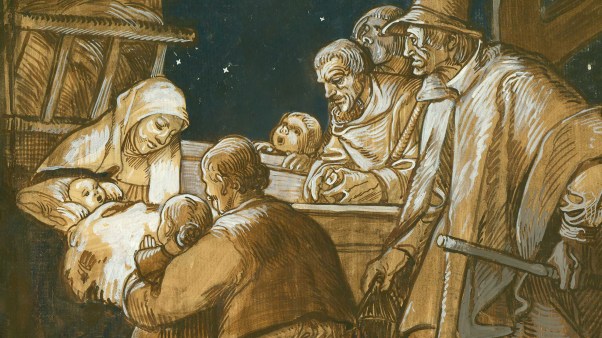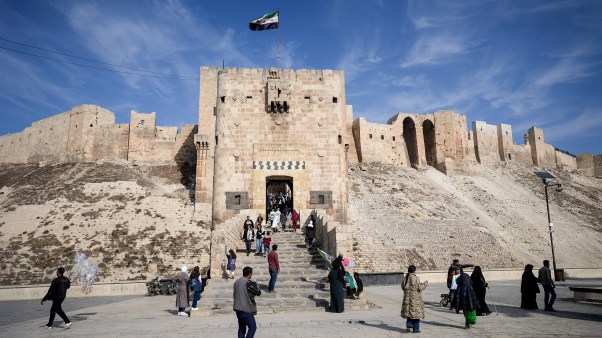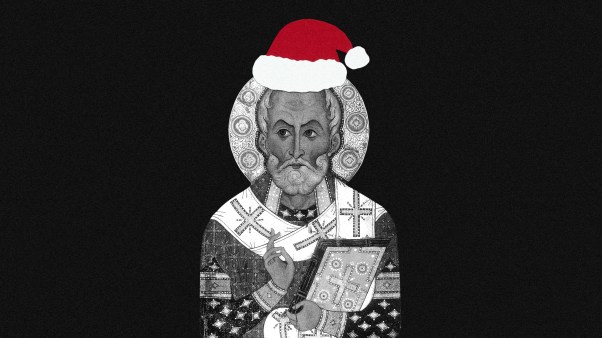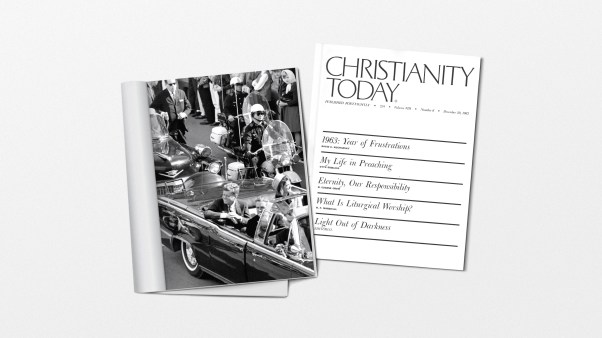First in a Series
The image of the Roman Catholic Church as obstinately insensitive to the great movements of history has been dramatically shattered in our day. However much this image may have been justifiable in the past, it is a mistake to imagine that an institution as large and far-flung as Roman Catholicism could remain unaffected by the spirit of the times. Thus, for example, the papal church could not ignore that dynamic movement of the sixteenth century known historically as the Reformation. Its answer was both irrational, in the form of persecution, and rational, in the form of the Council of Trent, which sought to present the teachings of Rome in a manner that would be acceptable to the world of that day but which also pronounced anathemas against the distinctive doctrines of the Reformed faith.
So too in our day, Roman Catholicism, unable to insulate itself (assuming that it wished to do so) against the growing heat of the ecumenical spirit, has had to adjust and re-examine itself in confrontation with this movement of contemporary history. Its answer, happily unmarred by the irrationality of a past age, has received focus at the official level in the summoning of the Second Vatican Council and the definitive statements that issued from that council. Although no new designation, the term “ecumenical” used in connection with this council (according to the papal reckoning, the twenty-first ecumenical council in the history of the Church) has taken on added significance because of the temper of the times. The introduction to the Decree on Ecumenism declares plainly that “promoting the restoration of unity among all Christians is one of the chief concerns of the Second Sacred Ecumenical Synod of the Vatican,” pointing out that in recent times God “has begun to bestow more generously upon divided Christians remorse over their divisions and a longing for unity.” (An English translation of this and the other statements officially issued by the council has been published under the title The Documents of Vatican II [New York, 1966]. Our references to this volume will use the abbreviation DV II followed by the page number.) The introduction continues:
Everywhere large numbers have felt the impulse of this grace, and among our separated brethren also there increases from day to day a movement, fostered by the grace of the Holy Spirit, for the restoration of unity among all Christians. Taking part in this movement, which is called ecumenical, are those who invoke the Triune God and confess Jesus as Lord and Savior. They join in not merely as individuals but also as members of the corporate groups in which they have heard the gospel, and which each regards as his Church and, indeed, God’s. And yet, almost everyone, though in different ways, longs that there may be one visible Church of God, a Church truly universal and sent forth to the whole world that the world may be converted to the gospel and so be saved, to the glory of God [DV II, 341],
A major objective of Vatican II was the modernization, the bringing up to date, or, to use the now celebrated Italian noun, the aggiornamento of the Roman Catholic Church, so that it might present a fresh and attractive face that would be pleasing not only to the “separated brethren” but also to the world at large. As Pope John XXIII said in his speech at the opening of the council on October 11, 1962, “by bringing herself up to date where required, and by the wise organization of mutual cooperation, the Church will make men, families, and peoples really turn their minds to heavenly things” (DV II, 712). The Second Vatican Council gives formal notice to the world that the Roman Catholic Church is determined to play a full part in this ecumenical age.
It is important to understand, however, just what the involvement of Rome in this ecumenical age really means. There is no excuse for misconception, for Rome’s definition of its position has been explicit and frank. Far too many persons make the mistake of assuming, despite clear pronouncements on the matter, that the friendly attitude of the papal church to the ecumenical temper of our day implies that application for membership of the World Council of Churches cannot be indefinitely delayed. But this is very far from being true. And it is not without significance that of the documents of Vatican II, the Dogmatic Constitution on the Church preceded the Decree on Ecumenism (and, probably, that these two documents were actually promulgated on the same day—November 21, 1964); for it is understandable that the attitude to ecumenism must be related to and governed by the doctrine of the Church. The attitude of Roman Catholicism toward the World Council of Churches has been stated with the utmost clarity by no less an authority than Cardinal Bea, the president of the Secretariat for Promoting Christian Unity, which was set up by Pope John XXIII: the Roman Catholic Church, according to him, “cannot, as has often been asked and desired, become a member of this organization which has a completely different character from the structure given by Christ himself to the Church he founded” (Christian Unity: A Catholic View, edited by John C. Heenan, p. 68).
As for those Anglicans who like to think they enjoy a more privileged position, let them heed the admonitory words of the new Catholic Dictionary of Theology, now in process of production, which declares that “amalgamation with the Church of England strictly so called or with the Anglican communion as a whole is, as anyone with the smallest knowledge of these matters knows to be the case, inconceivable,” and reunion between Canterbury and Rome can mean only one thing, namely, “that the Anglican communion, or some portion of it, great or small, should accept the supremacy of the Holy See and the doctrinal definitions of 1854, 1870, and 1950, together with those of the Council of Trent, and then be corporately admitted to Catholic fellowship” (I, 94).
Similarly, the Decree on Ecumenism announces it as a principle that Christ perfects his people’s fellowship in unity “in the confession of one faith, in the common celebration of divine worship, and in the fraternal harmony of the family of God,” through the faithful preaching of the Gospel “by the apostles and their successors—the bishops with Peter’s successor at their head—through their administration of the sacraments, and through their loving exercise of authority” (DV II, 344). In no way does Rome relax its claim to be the one true Church.
No longer, however, are those who are outside the papal fold dismissed as heretics; for “men who believe in Christ and have been properly baptized are brought into a certain, though imperfect, communion with the Catholic Church,” and “they therefore have a right to be honored by the title of Christian and are properly regarded as brothers in the Lord by the sons of the Catholic Church” (DV II, 344). The task of reunion, then, is to bring these erring brethren back into the perfection of that fold from which they have strayed. There can be no question of seeking and finding unity outside the only true Church or of accepting the World Council of Churches as a legitimate ecclesiastical structure. Vatican II makes it absolutely plain that there is only one road to reunion and that this road, restricted to one-way traffic, leads to Rome.
For it is through Christ’s Catholic Church alone, which is the all-embracing means of salvation, that the fulness of the means of salvation can be obtained. It was to the apostolic college alone, of which Peter is the head, that we believe our Lord entrusted all the blessings of the New Covenant, in order to establish on earth the one Body of Christ into which all those should be fully incorporated who already belong in any way to God’s People [DV II, 346].
Roman Catholicism conceives its ecumenical task as being, in the first place, renewal of its own image, including the clearing out of the outdated lumber that litters its household and the reformulation, with dogmatic compromise, of its teachings where this can be done to advantage. It is emphasized that “there can be no ecumenism worthy of the name without a change of heart.” Repentance is necessary for sins against unity. “Thus,” the Decree on Ecumenism reads, “we beg pardon of God and of our separated brethren, just as we forgive those who trespass against us.” The decree goes on to say:
This change of heart and holiness of life, along with public and private prayer for the unity of Christians, should be regarded as the soul of the whole ecumenical movement, and can rightly be called “spiritual ecumenism.”
Another ecumenical requisite is the wish “to understand the outlook of our separated brethren”; as a means to this end, encounter and dialogue are warmly commended, particularly at the theological level:
Of great value for this purpose are meetings between the two sides, especially for discussion of theological problems, where each can deal with the other on an equal footing [DV II, 350].
The admonition is added that “nothing is so foreign to the spirit of ecumenism as a false conciliatory approach which harms the purity of Catholic doctrine and obscures its assured genuine meaning.”
Finally, cooperation of all Christians in social concern is encouraged, in such a way as to manifest “a just appreciation of the dignity of the human person,” to promote “the blessings of peace,” to apply “gospel principles to social life,” to advance “the arts and sciences in a Christian spirit,” and to use “every possible means to relieve the afflictions of our times, such as famine and natural disasters, illiteracy and poverty, lack of housing, and the unequal distribution of wealth” (DV II, 354).
The Decree on Ecumenism is refreshingly free from the ambiguity and double-talk that bedevil so many ecumenical pronouncements. Indeed, there is a striking contrast between this decree and what Hans Küng has described as “the colorless character of many of the theological pronouncements of the World Council and the feeble authority of its decrees” (Structures of the Church, p. 199). Although, naturally enough, there are many important matters in Professor Küng’s writings that we should wish to debate vigorously with him, yet we regard him as one who admirably exemplifies the new spirit by which Roman Catholicism is now so widely animated, and we applaud him wholeheartedly when he affirms that “the testing standard is not the status quo (itself to be tested) of the Church, but the gospel of Jesus Christ” (op. cit., p. 84); and again when he offers the following judgment:
Neither Catholics nor Protestants can consider themselves exempt from making a continuous effort to model themselves upon the apostolic Church. Neither do appeals to Catholic tradition or to the Protestant Reformation release them from the obligation constantly to realize anew that which is the crucial factor, if one desires the designation “apostolic”: namely, objective harmony with the apostolic message [op. cit. p. 98].
On this basis alone—the eternal Gospel of our Lord Jesus Christ, which at the same time is the authentic message of the apostles—is there a genuine possibility of charitable encounter, forthright speaking, fruitful discussion, and true ecumenical progress. And, however unacceptable by this same standard some of the absolute claims and demands of Rome may be, it is on this basis that we should wish to sit down and talk together. Vatican II has opened the door for just such an encounter, and we welcome it. But unless and until Roman Catholicism radically reforms itself in such a way as to bring its teaching and its practice into “objective harmony with the apostolic message,” we cannot be expected to set out on the Romeward road.
Milton D. Hunnex is professor and head of the department of philosophy at Willamette University, Salem, Oregon. He received the B.A. and M.A. degrees from the University of Redlands and the Ph.D. in the Inter-collegiate Program in Graduate Studies, Claremont, California. He is author of “Philosophies and Philosophers.”










